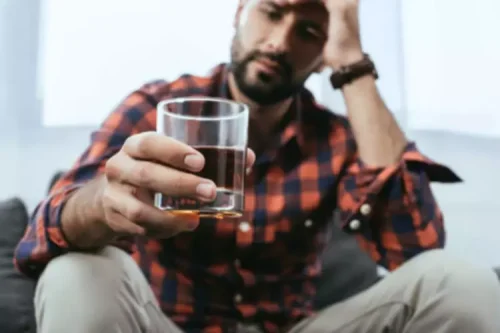
For people wanting to withdraw from prescription drugs, such as opiates, benzodiazepines or stimulants, the detox process can feel overwhelming. The intensity and duration of withdrawal symptoms from benzodiazepines (benzos) can vary greatly. People who have been taking high doses of benzos for a long time often face longer and more intense withdrawal symptoms than those who used lower doses for a shorter time. For those diagnosed with sedative use disorder, treatment typically begins with gradually reducing the benzo dosage.

Preventing alcohol withdrawal

Medical supervision during Benzo’s detox is crucial to ensure safety, as withdrawal can be unpredictable and, in some cases, life-threatening. Abrupt cessation is not recommended for those who have been taking the drug for more than four weeks. This can take a long time, and it may be best to plan for an 18-month process – sometimes longer – particularly if benzodiazepines have been taken for a long period of time. Many factors must be considered in establishing a deprescription plan, but a detailed best practices evidence-based tapering guide that is tuned specifically to benzodiazepines can be found HERE.
- Recognizing these potential risks is essential in delivering customized care and support for those undergoing the process of withdrawing from alcohol.
- According to the American Psychiatric Association (APA), withdrawal symptoms from short-acting benzodiazepines peak on the second day and improve by the fourth or fifth.
- We’re here to guide you every step of the way, offering compassionate care, evidence-based treatments, and unwavering support.
Free Healthbeat Signup
Remember, everyone’s experience with benzodiazepine withdrawal is different. Being aware of what to expect can significantly aid in managing this challenging phase. With appropriate support and strategies, moving through the withdrawal timeline can pave the way for a successful and lasting recovery. Using benzos for a long time can lead to problems, which is known as sedative use disorder. This disorder can increase your chances of having cognitive issues and the risk of overdosing.
Benzos Withdrawal Symptoms
- Being aware of what to expect can significantly aid in managing this challenging phase.
- Evidence shows that roughly 25% of all Americans who use benzos use the drugs long-term — many of whom are unaware they’re exposing themselves to a high risk for benzo addiction and overdose.
- In most cases, hallucinations caused by benzo withdrawal are visual in nature, and coincide with misperceptions and illusions — such as seeing floors that appear to slope and tilt.
- These onset symptoms tend to be mild and may encompass slight tremors, a sense of mild anxiety, as well as minor alcohol withdrawal indications such as headaches.
In Las Vegas, The Nestled Recovery provides a compassionate environment for individuals on their journey to sobriety. When opioids are tapered, short-acting forms of those medications can be added to ameliorate the withdrawal symptoms while the long-acting opioids are decreased over time. This strategy, however, is not recommended for benzodiazepines because of a central nervous Twelve-step program system process called kindling. Stopping benzodiazepines all at once can be dangerous, so your doctor will likely guide you through a tapering regimen that involves gradually reducing your dose over time. If you experience severe withdrawal symptoms during tapering, tell your doctor so they can adjust your care plan as needed.
- The details are kept up to date to help people with addiction treatment needs get the most full and precise facts about the rehabilitation facility.
- But recovering with a benzo detox allows you to consult and communicate with doctors who can alter your tapering schedule and doses on the fly as needed to minimize withdrawal symptoms.
- For information about our Privacy Policies, please see our Privacy Policy and HIPAA Notice of Privacy Practices page.
- Our compassionate team is dedicated to empowering you with the tools and strategies you need to overcome benzodiazepine withdrawal and reclaim your life.
Using these drugs for an extended time period drastically increases the risk of tolerance, dependence, and addiction. It’s estimated that over 30 million adults in the United States have used benzodiazepines such as Ativan, Xanax, Klonopin, and Valium in the past year. Long-term treatment after benzodiazepine withdrawal will depend on your reasons for taking them in the first place and your reasons for quitting.
Identifying and managing triggers through therapy helps address the root causes of addiction. After detox, engaging benzodiazepine withdrawal in aftercare and relapse prevention programs is vital for maintaining sobriety and building a foundation for a drug-free life. While the protracted nature of benzo withdrawal can be discouraging, it’s important to remember that recovery is possible. With patience, persistence, and the right support, you can navigate these phases and reclaim your well-being. However, with prolonged use, the brain adapts to the presence of these drugs, leading to dependence. This means that when you try to stop taking benzos, your brain struggles to function normally without them, resulting in withdrawal.

Leave a Reply